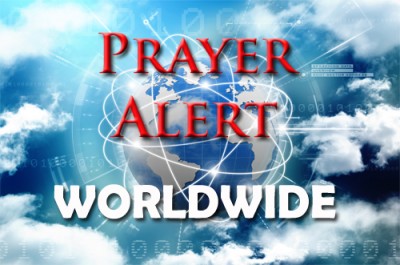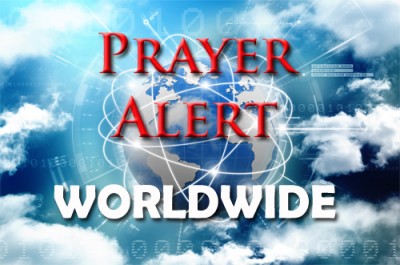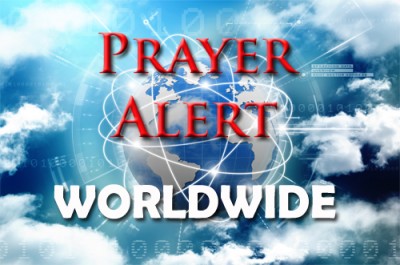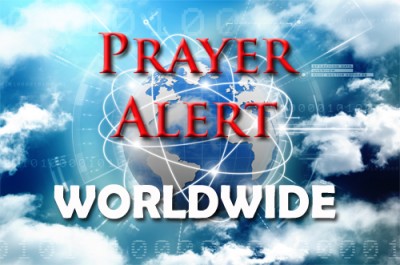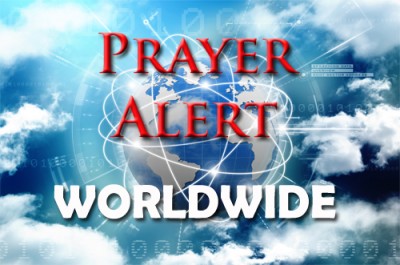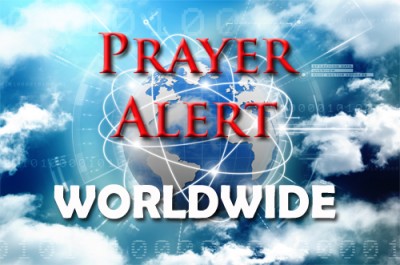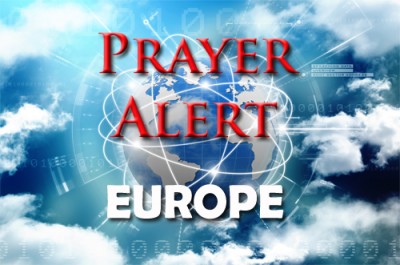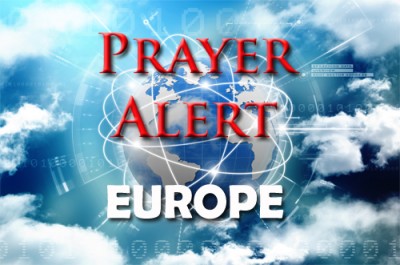Pray for Pakistan
05 Aug 2016A missionary writes, ‘We must look at Pakistan in a new way. One out of 13 unreached people groups are in Pakistan. On the persecution scale the situation in Pakistan is increasing. In 2003 Pakistan was rated #59, this year it is at #6. This part of the world needs much prayer. The devil and his legions are working at an increased and higher level. In the last three months missionaries across the country are having visas refused and rejected on a scale we have never seen before, even affecting those working in hospitals and schools. Nationals say that when missionaries are thrown out, the persecution level for local Christians will greatly increase. PRAY very directly for a reversal of these visa refusals. Visas are just one example, but many other things are rapidly happening. Prayer is the only hope for serious reversal of evil in this country and people coming to Christ.’ There is no ‘more’ link as this article was prepared from an email. Further prayer points will follow from this same source, in next week’s Prayer-Alert.
Pastor Yousef Nadarkhani, sentenced to death for apostasy and later acquitted in 2012, has now been charged with ‘acting against national security’. On 24 July Yousef Nadarkhani was summoned to the Revolutionary Court in Rasht and formally charged with ‘acting against national security’ - a common charge brought against church leaders in Iran - and accused of Zionist activities and evangelism. Yousef was given until 31July to raise the equivalent of $33,000 bail or face arrest. Those close to Pastor Yousef request prayer that: -the oppressive actions against him will stop and the new charges of ‘acting against national security’ will be dropped; -that God will give His peace to Yousef and his family, and that they will not be anxious; -that some of the officials involved will love mercy, act justly, learn about Jesus and choose to follow Him.
Syria: Aleppo residents to flee or starve
05 Aug 2016Last Saturday, with 300,000 people trapped in rebel-held eastern Aleppo and food supplies expected to run out in August, Syrian state media reported that ‘buses with dozens of families had left eastern areas along a humanitarian corridor’. On Sunday night a campaign was launched on the eve of the 71st anniversary of the founding of the Syrian army. By Monday, Aleppo’s rebel fighters had launched their military operation aimed at breaking the weeks-long regime siege of the opposition-controlled eastern part of the city. The civilians’ plight, caught in the middle of all this, has led to growing international alarm. Civilians are surrounded by brutal aerial bombing campaigns from Bashar al-Assad and his Russian allies. Even chemical bombs have allegedly been used. The last hospitals in the area have been destroyed. They need prayer now more than ever. This battle is an urgent humanitarian catastrophe which could end all hope of a negotiated peace
Kenya: Arson attacks on schools
05 Aug 2016Kenya is dealing with a wave of arson attacks with more than 100 schools torched this year. The reason behind the attacks is not clear, but it comes amid a government crackdown on exam cheating and other reforms to the education sector. Some schools had to shut down completely with 6,000+ students being sent home. Several more schools were set alight in the last week. The August school holidays have been cut short by two weeks under new reforms. In some investigations it was discovered that fires were started by students. Some do it because they want to be famous. Others do it out of ignorance and some do it because of drugs. Some are saying this is a protest against a high work load and a lack of holidays. In the end parents will bear the brunt of rebuilding torched dormitories. Pray for the root of this rebellion to be removed.
Zimbabwe
05 Aug 2016After years of crippling hyperinflation and unemployment Zimbabwe is on the verge of complete collapse and open revolution. A local pastor posted videos on social media under the hashtag #thisflag. and was swiftly arrested after a successful stay-away (workers stayed at home in peaceful protest). On the day of his trial, thousands of church leaders, lawyers and champions of freedom descended on the magistrate’s court where he stood accused of encouraging violence. However, his videos called for peaceful non-violent protest and prayer for the nation, begging leaders to stamp out corruption, injustice and police brutality. The prosecutor then submitted a changed charge of treason (punishable by death). In the face of shield-bearing, baton-wielding riot police, the protesters outside the court knelt down, lifted flags and Bibles and prayed for justice and freedom. Miraculously, justice prevailed and the magistrate threw the case out because of a technicality. He was released. The battle for a free and prosperous Zimbabwe has begun.
South Korea: After the Uprising
05 Aug 2016Pray for the flames that were ignited among the youth during the Uprising last week to be fanned into great fires of healing and restoration across the nations. Pray for God to direct and lead the next generation into a deeper walk with the Lord and effective evangelism. Pray for the protection of all those who led the worship, teaching and intercession. As they gave out, so may God pour out His refreshing. Pray that God’s prophetic words would be fulfilled, for hopes and dreams of this generation of youth; may God’s power be demonstrated in their hearts and lives and service. Pray for God’s victorious life to continue filling them and overflow through them to others across the nations, generating faith amongst His people. Pray that they would powerfully step out into the giftings He has given them as they are led by His word and prompted by His Holy Spirit to grow in His kingdom .
Europe refugee centres and child brides
05 Aug 2016This week in Afghanistan a cleric in his 60s was arrested after marrying a six-year-old girl. Mohammad Karim claimed he married the child as a ‘religious offering,’ and her parents agreed. Elsewhere, in European asylum camps child brides are being allowed to stay with their older husbands. Scandinavian asylum centres are defending the practice by saying husbands may be the only person brides know and trust even though child abuse is suspected. In Norway during 2015, ten migrants under the age of 16 were married (four had children). Oslo does not ratify conventions by the Council of Europe aimed at avoiding child abuse and exploitation. In February, dozens of young female asylum seekers were discovered living with older men in Danish refugee centres . A month earlier, 70 married under-age girls were in Swedish asylum centres in Stockholm and Malmo. See: https://www.rt.com/news/353996-afghan-cleric-married-girl/
Germany: Weapons stolen from US military base
05 Aug 2016Special agents from the US Army Criminal Investigation Command are investigating the theft of guns and other military equipment from an arms room in a Stuttgart base. The Army declined to say what kind of or how many weapons were stolen or to identify the unit targeted, citing the active investigation. A possible breach of the base fence is also part of the ongoing probe ‘and something we are looking at very closely,’ said Ray Johnson, a spokesman for the Army's Installation Management Command-Europe. A military official who was not authorised to speak to the media said that the site was Panzer Kaserne and that the theft included an unspecified number of guns. Panzer Kaserne is home to elite units such as Army Green Berets and Navy SEALs, as well as the garrison's headquarters and support units. The break-in comes at a time of heightened security concerns in Germany in the wake of a wave of high-profile terrorist attacks.
